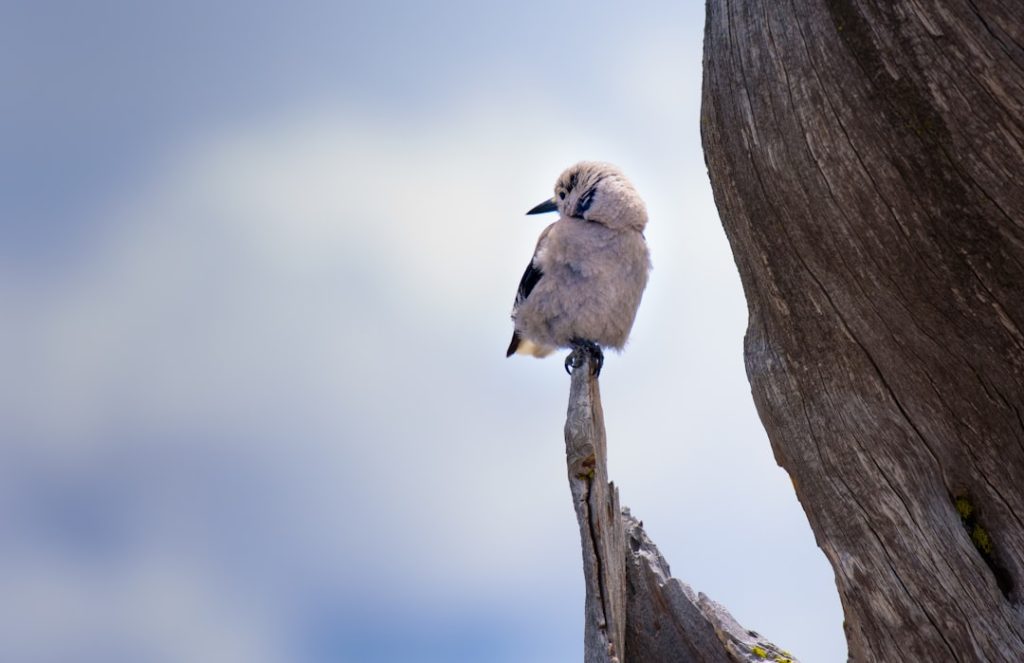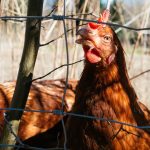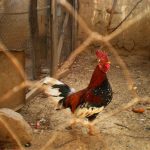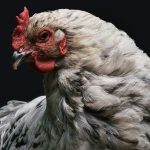Molting is a natural process in chickens where they shed old feathers and grow new ones. This typically occurs annually, usually in autumn, lasting 6-12 weeks. During molting, chickens may appear unkempt with patchy feathers and reduced egg production.
Chicken owners should recognize molting as a normal part of the chicken’s life cycle and provide appropriate care. During molt, chickens redirect energy and nutrients to feather growth, often resulting in decreased egg laying. A balanced diet high in protein, vitamins, and minerals is essential to support feather growth and overall health.
Providing a low-stress environment and regular grooming can also aid chickens through the molting process. Understanding molting is crucial for chicken owners to ensure proper care and support for their flock during this natural cycle. By recognizing the signs and needs of molting chickens, owners can help their birds navigate this period more comfortably and maintain their overall health.
Table of Contents
Key Takeaways
- Molting is a natural process where chickens shed old feathers and grow new ones, typically occurring once a year.
- A balanced diet for chickens should include a mix of grains, protein, vitamins, and minerals to support overall health and feather regrowth.
- Managing stress and environmental factors such as overcrowding, extreme temperatures, and predator threats can help minimize the impact of molting on chickens.
- Regular grooming and hygiene practices, such as dust baths and keeping the coop clean, can help chickens maintain healthy feathers.
- Adequate lighting and temperature control in the coop can help support the molting process and overall well-being of chickens.
- Regular monitoring for parasites and illnesses, such as mites and respiratory infections, is essential for maintaining chicken health during molting.
- Seeking professional advice from a veterinarian or poultry expert can provide additional support and guidance for managing molting and chicken health.
Providing a balanced diet for chickens
Protein: The Building Blocks of Health
Protein is particularly important during the molting process as it provides the necessary building blocks for growing new feathers.
Providing a Balanced Diet
Chickens can obtain protein from sources such as insects, mealworms, and high-quality commercial feeds. Additionally, providing access to fresh fruits and vegetables can help ensure that chickens receive a wide range of vitamins and minerals to support their overall health. It’s important to provide access to clean, fresh water at all times to prevent dehydration and support proper digestion.
Additional Essentials for Optimal Health
Additionally, offering access to grit can help chickens properly digest their food and absorb essential nutrients. Providing a balanced diet for chickens is crucial for supporting their overall health, egg production, and feather growth.
Managing stress and environmental factors

Stress and environmental factors can have a significant impact on the health and well-being of chickens. It’s important to provide a clean, comfortable living environment for chickens to minimize stress and promote overall health. This includes providing adequate space, proper ventilation, and protection from predators.
Additionally, maintaining a consistent routine and minimizing disruptions can help reduce stress for chickens. Environmental factors such as temperature and humidity can also impact the health of chickens. It’s important to provide adequate shelter and protection from extreme weather conditions to ensure the comfort and well-being of the flock.
Additionally, providing access to dust baths can help chickens naturally manage parasites and maintain healthy skin and feathers. Managing stress and environmental factors is crucial for promoting the overall health and well-being of chickens.
Implementing regular grooming and hygiene practices
Regular grooming and hygiene practices are essential for maintaining the health and well-being of chickens. This includes regularly checking for signs of parasites, such as lice or mites, and providing appropriate treatment if necessary. Additionally, keeping the coop clean and free of waste can help prevent the spread of disease and maintain a healthy living environment for chickens.
Grooming practices such as trimming nails and beaks can also help prevent injury and promote overall comfort for chickens. Regularly inspecting the feathers for signs of damage or matting can help identify any potential issues early on. Implementing regular grooming and hygiene practices is crucial for maintaining the health and well-being of chickens.
Ensuring adequate lighting and temperature control
Adequate lighting and temperature control are essential for maintaining the health and well-being of chickens. Providing access to natural light or supplemental lighting can help regulate the chicken’s internal clock and promote healthy egg production. Additionally, ensuring proper ventilation and insulation in the coop can help maintain a comfortable temperature for chickens year-round.
During the molting process, it’s important to provide a stress-free environment with consistent lighting and temperature control to support feather growth and overall health. Monitoring for any fluctuations in temperature or lighting can help identify potential issues early on and prevent any negative impact on the flock. Ensuring adequate lighting and temperature control is crucial for promoting the health and well-being of chickens.
Monitoring for parasites and illnesses

Regular monitoring for parasites and illnesses is essential for maintaining the health of chickens. This includes regularly inspecting the flock for signs of lice, mites, or other parasites, as well as keeping an eye out for any changes in behavior or appearance that may indicate illness. Providing appropriate treatment for parasites or illnesses as soon as they are detected can help prevent further spread and promote the overall health of the flock.
Additionally, practicing good biosecurity measures, such as limiting exposure to outside birds or wildlife, can help prevent the introduction of potential diseases to the flock. Regularly cleaning and disinfecting the coop and equipment can also help minimize the risk of illness. Monitoring for parasites and illnesses is crucial for maintaining the health and well-being of chickens.
Seeking professional advice if necessary
In some cases, seeking professional advice from a veterinarian or experienced poultry specialist may be necessary to address specific health concerns or issues within the flock. This may include seeking guidance on proper nutrition, treatment for illnesses or parasites, or advice on managing specific environmental factors. Professional advice can also be valuable for developing a proactive health management plan for the flock, including vaccination schedules and preventative measures to minimize the risk of illness or disease.
Additionally, seeking professional advice can provide peace of mind for chicken owners who may be unsure about how to address specific health concerns within their flock. Seeking professional advice if necessary is crucial for ensuring the health and well-being of chickens.
If you’re interested in learning more about poultry care, you might want to check out this article on how many eggs geese lay. It’s important to understand the breeding habits of different poultry species in order to provide them with the best care possible.
FAQs
What is molting in chickens?
Molting is the natural process in which chickens shed their old feathers and grow new ones. This typically occurs once a year and can last for several weeks.
Why is molting a concern for chicken owners?
Molting can be a concern for chicken owners because it can affect egg production and the overall health of the chickens. During molting, chickens may stop laying eggs or produce fewer eggs, and they may also be more susceptible to stress and illness.
How can chicken owners help their chickens through the molting process?
To help chickens through the molting process, owners can provide a balanced diet high in protein, such as mealworms or other protein-rich treats. They can also ensure that the chickens have access to clean water, a stress-free environment, and protection from extreme weather conditions.
Are there any methods to prevent or minimize molting in chickens?
Molting is a natural process and cannot be completely prevented, but providing a well-balanced diet and minimizing stress can help minimize the impact of molting on egg production and overall chicken health.
How long does the molting process typically last?
The molting process can last anywhere from a few weeks to a few months, depending on the individual chicken and environmental factors. It is important for chicken owners to be patient and provide the necessary care and support during this time.
Meet Walter, the feathered-friend fanatic of Florida! Nestled in the sunshine state, Walter struts through life with his feathered companions, clucking his way to happiness. With a coop that’s fancier than a five-star hotel, he’s the Don Juan of the chicken world. When he’s not teaching his hens to do the cha-cha, you’ll find him in a heated debate with his prized rooster, Sir Clucks-a-Lot. Walter’s poultry passion is no yolk; he’s the sunny-side-up guy you never knew you needed in your flock of friends!







